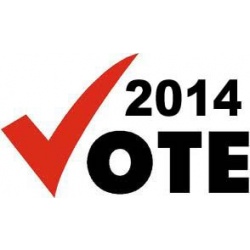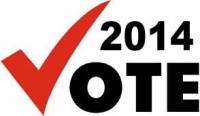
Letter to the Editor: Karl Knudson responds to Jim Dale's Letter to the Editor
(The following Letter to the Editor has been submitted by Karl Knudson of Decorah):
In his recent opinion piece, Jim Dale laments the fact that he received mailings from Crossroads GPS which contained a "lovely picture" of a "smiling" Joni Ernst, and "ghoulish" picture of Bruce Braley. Although he states that Iowans are not so "dumb" as to fall for "cheap manipulation," he apparently feels that the threat to our "whole electoral system" created by this type of paid advertising is so great that we should "amend the Constitution" as a "solution." He notes that Bruce Braley supports such an amendment, but Joni Ernst does not.
Is Joni Ernst too extreme for Iowa because she supports the First Amendment to the U.S. Constitution? The Supreme Court case which Jim Dale refers to is the 2010 case of Citizens United v. FEC. In that case, the FEC had attempted to prevent the advertising or airing of a film critical of Hillary Clinton within 30 days of the 2008 primary election because the FEC deemed it to be an "electioneering communication." The Supreme Court held the portion of the campaign finance law which would have allowed the FEC to impose such restrictions was in violation of the First Amendment. When you think of it, this is only fair. After all, news organizations across the spectrum from MSNBC to Foxnews, from the Huffington Post to Drudge Report, and from the Des Moines Register to the Wall Street Journal are corporations which engage in political speech every time they air, post to the internet, or print their publications.
If the restriction of corporate speech in the political arena could be legally restricted, it would only be a matter of time before efforts were made to regulate news organizations, or at least those deemed by the authorities not to be "legitimate news organizations." If the powers of the IRS, DOJ, or other agencies can be politicized, the FEC could be politicized as well. Free political expression would be chilled.
One has to wonder how a new system implemented to regulate political speech following such amendment of the First Amendment would work. Government-appointed officials would decide whether a publication or broadcast stood in violation of electioneering rules based on content. News organizations would need to worry about whether they put up a photo of Dear Leader which was not flattering enough, or of his opponent which was too flattering. News media and even bloggers would not dare to report a story that might be deemed objectionable to authorities reviewing political content. Because we in the United States lack experience with this method of political regulation, perhaps those appointed to regulate speech after the repeal of the First Amendment could be sent to North Korea for training in how to run such a program effectively.
For over two hundred years, the United States has not attempted to regulate speech, and especially political speech, under the theory that if competing ideas can be expressed in the public forum, the American people will make good judgments, and truth and wisdom will win out in the end. Perhaps I am old-fashioned in thinking that this system, despite all of its imperfections, is preferable to any alternative. If you find an unwanted political brochure in your mail box, you can always toss it out in your garbage. There is no need to toss out the First Amendment instead.
Site designed and maintained by Iroc Web Design Services©.
Your Small Business Web Design Solutions.™


